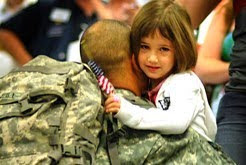As a child with a military parent, I have gotten used to moving every few years. In fact, this way of life is all I have known because I have not lived anywhere longer than two years since I was five years old. I have grown to expect that there will be occasions when my father will be deployed for long periods of time, as he is now. I have also come to expect that there will be constant mobility. These things I am perfectly able to cope with precisely because they are expected. However, the most difficult thing I have had to face as a result of my father being in the military was completely unanticipated, and it happened just a few weeks ago.
I was sitting in my apartment at the University of Virginia, and I got a call from my mom. She wanted to talk about moving this summer and all the things that would need to be done. I have been through this so many times that I automatically slipped into a “moving time” state of mind. Usually, this involves things like making lists, deciding what to ship and what to take with me, and starting to pull myself away from my friends so that it will be easier to leave in a few months. So naturally, when my mom and I started discussing the moving process, I did the same thing I have always done. Completely unaware of what I was doing, I started to pull myself away from my college friends.
However, within a week or so some of my friends made the comment that they had not seen me in awhile. This caught my attention, and I immediately realized what I had been doing. When I explained my situation, a friend equated it to muscle memory, which was quite fitting. I never learned how to stay and form long-term friendships. I only learned how to keep myself detached and ready to leave at a moment’s notice. Realizing that I will be staying at UVA for my third year has been much more difficult than I ever expected, and through this I am learning how to commit to lasting friendships. I am learning how to accept some stability, and most importantly, I am learning how to stay.















